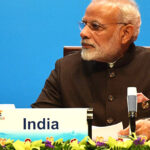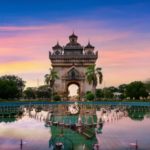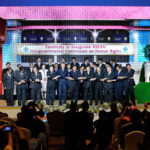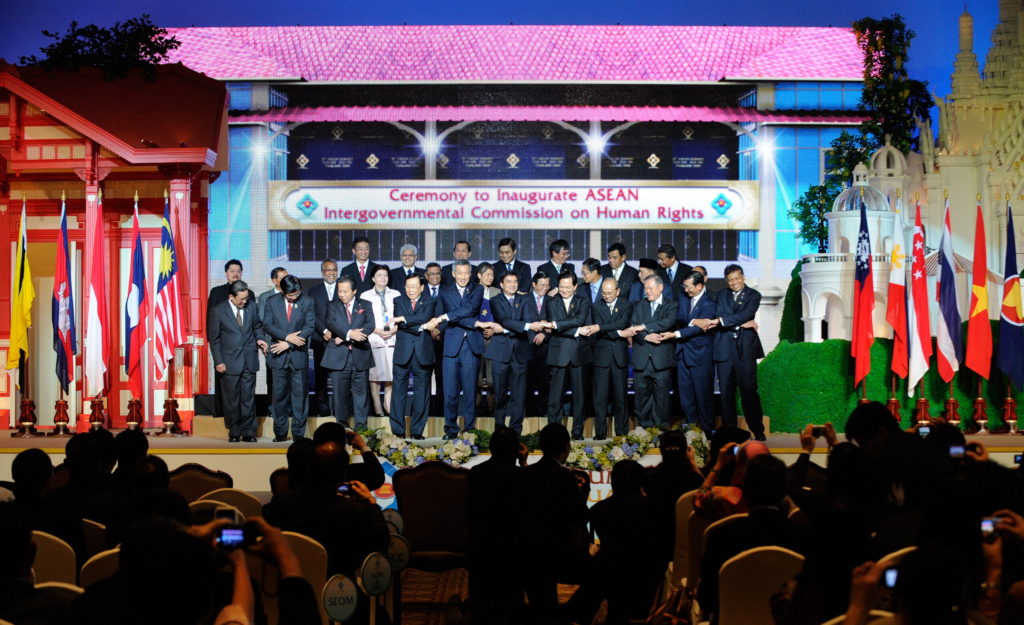
Each member state of the United Nations takes part in the Universal Periodic Review (UPR) process every five years. The aims are simple enough: evaluate and improve the human rights situations in all 193 UN countries and assist the fulfilment of each state’s human rights obligations through an objective, transparent, constructive process. The UPR was developed in coordination with the UN Human Rights Council, which was built from the ashes of the old Commission on Human Rights that many UN member states believed had lost its luster and objectivity. World leaders decided in 2005 to construct the UPR as a central pillar of the new council, steered by a mechanism based on peer review.
Thai civil society has been disappointed by the government’s casual dismissal of many of the most serious human rights concerns and, like in past UPR cycles, Thailand’s intractability on lèse majesté, which effectively outlaws criticism of the royal family. After three cycles, the UPR in Thailand has become a rather predictable and frustrating process.
Thailand participated in the UPR in Geneva, Switzerland, on 10 November, the third time the Kingdom has been through the process since October 2011.
Also this month, Thailand’s Constitutional Court ruled that activist calls for monarchical reform may be tantamount to sedition. The court’s decision is likely to cement the ongoing trend of charging and jailing dissenters under the Kingdom’s draconian lèse majesté law, known as Article 112.

In Geneva, the Thai government held firm on its defense of Article 112, calling the monarchy the “main pillar of the nation,” language the Thai government has used since 2011. Thailand received a dozen recommendations from other countries about its use of lèse majesté, with the majority of them calling for an amendment to the law.
A number of states had pointed questions for Thailand, many of which shared concerns about the precarious environment for human rights defenders and the status of laws regarding torture and enforced disappearance.
Thailand’s third cycle UPR is not over. A report will soon be produced by the Human Rights Council with assistance from the Office of the High Commissioner on Human Rights (OHCHR). The outcome report is insightful as it contains a summary of the actual discussion, comments and recommendations by other member states, as well as Thailand’s formal responses. Over the next few years, before Thailand goes through the process again in May 2026, the government will be held to task on the implementation of recommendations it accepted.
To understand the exasperation of Thai civil society and derive an appropriate perspective, it is important to return to the UPR process, which is the origin of frustration and anxiety for many NGOs and CSOs. The process goes wrong in the beginning, when the government is supposed to seek and collect input from all facets of Thai society.
The UPR opens with the preparation of a national report, which is supposed to be preceded by an exhaustive and inclusive consultation process with civil society members and the public. The report informs the UPR by highlighting achievements, assessing remaining challenges and documenting national efforts to protect human rights.
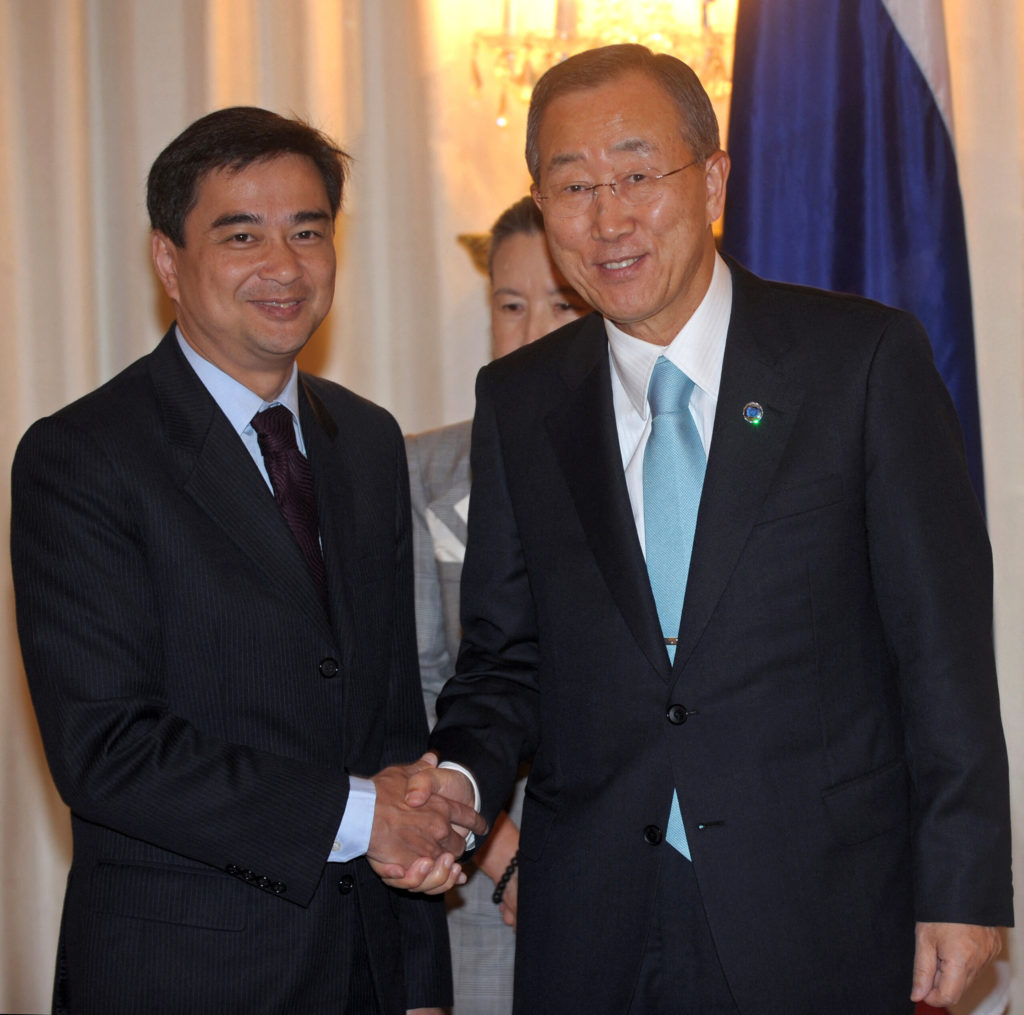
Thailand’s first experience with the consultative process in 2011 under the government of former prime minister Abhisit Vejjajiva was well received, with the Ministry of Foreign Affairs and the Ministry of Justice taking the lead. In the months before the submission of Thailand’s 2011 national report, five consultations were held in different regions of the country, spurred by media campaigns inviting civil society to participate.
However, Thailand’s maiden effort would not be repeated. Due to the core UN principles of sovereignty and independence, the UPR does not police or monitor national consultation processes. The review involves no independent experts or advisors and the quality of the national reports is solely dependent on the reliability and accuracy of information provided by member states. Subsequently, consultations on national reports are also dependent on the strength of their outreach.
In the past, Thailand had some help. In 2016, UPR Info Asia, a Geneva-based NGO, organised a meeting with Thai civil society groups to pursue dialogue and inform Thailand’s national report. Consultations for the 2021 UPR process, however, have been mixed at best, with some organisations reporting a positive experience and others shunning the process altogether.
Veerawit Tianchainan, executive director of anti-child trafficking organisation The Freedom Story, participated in regional consultative sessions in Bangkok and other parts of the country. He was invited by the Ministry of Justice to speak on a panel about his experiences in a civil society organisation after participating in previous UPR sessions in Geneva in 2011 and 2016.
Veerawit noted that sensitive subjects like lèse majesté were avoided and the plight of refugees and migrant workers has not been positively reflected by the government, but his impression of Thailand’s consultation process remained positive.
Other human rights organisations such as Human Rights Watch and iLaw were not invited to consultations. Phil Robertson, Asia Division deputy director at Human Rights Watch, said invitations are issued to NGOs that are more friendly to the government or focused on less controversial topics like child rights or education. Many organisations have said they believe only conservative members of Thai civil society are notified of speaking opportunities.
Emilie Pradichit, founder and executive director of the Manushya Foundation, had a slightly different take: “The process works if you are under a democratic government.” Pradichit said that in ideal conditions, government officials would listen openly, admit their challenges and include those in their national report.
For countries like Thailand, that’s not the case.
“The government would most likely only invite NGOs that are not confronting them, so they can tick the box of ‘national consultation with CSOs was done throughout the country,’” Pradichit said.
In keeping with Pradichit’s evaluation of the process, several UPR best practices can be found in more democratic states like Denmark, Malaysia and New Zealand.
Denmark prepared for its third cycle report with several public hearings prepared by the Ministry of Foreign Affairs and the Danish Institute for Human Rights. The Danish government also involved universities, which widened participation by reaching out to students, the academic community and local administrative bodies. The draft report including the input of the extended participants was posted on the ministry’s website for public comments.
Similarly, New Zealand’s Ministry of Foreign Affairs and Trade held public consultations in several cities and towns in early 2018. New Zealand also involved its human rights commission and opened up its UPR submission to the public for comments before undergoing its third cycle UPR in July 2019.
Peru also provides a window into what might work. The Peruvian National Human Rights Council was modified to enable the state to respond quicker to national human rights commitments. The council also can employ a broader perspective through a number of observers, including ministries, several civil society organisations and the OHCHR. National human rights policy directly links to recommendations and feedback from UN human rights mechanisms, including the UPR.
In contrast, Thailand has corrupted the national consultation process or exploited its weaknesses. The two lead ministries feign a dialogue through the UPR or UN treaty bodies, but their ultimate aim is to present a polished and packaged image to the international community.
For this reason, the Manushya Foundation has shied away from participation in the national consultations and the original aspirations of the 2005 UN Human Rights Council Resolution that created the UPR cannot be fulfilled.
Inadequate national consultation processes are a crisis among authoritarian states, but the lack of attention to the early phase of the UPR process is on the rise. Alarm bells should be ringing within the UN Human Rights Council in light of the increase in this behaviour over the past ten years.
Part of the problem in Thailand is the diminished status of the Office of the National Human Rights Commission of Thailand (NHRCT). The Global Alliance of National Human Rights Institutions downgraded NHRCT to observer status because of a large number of deficiencies, including a suspect method of appointing commissioners, questions surrounding the institution’s independence and an inability to address national human rights issues in a timely manner.
In an ideal environment, Thailand would contribute to best practices by empowering the country’s human rights commission to share leadership of the national consultations with the foreign affairs ministry.
Of course, none of this matters without expressed political will. As with the previous cycle in 2016, Thailand is not concerned with reform as much as with status quo maintenance with a false projection that its human rights record is on par with or exceeds other countries.
In the meantime, it is unreasonable to expect civil society to take part in a consultation process seeking to publicise narrow successes rather than to unearth and address persistent human rights challenges within the country and have those inputs reflected in Thailand’s national report.

